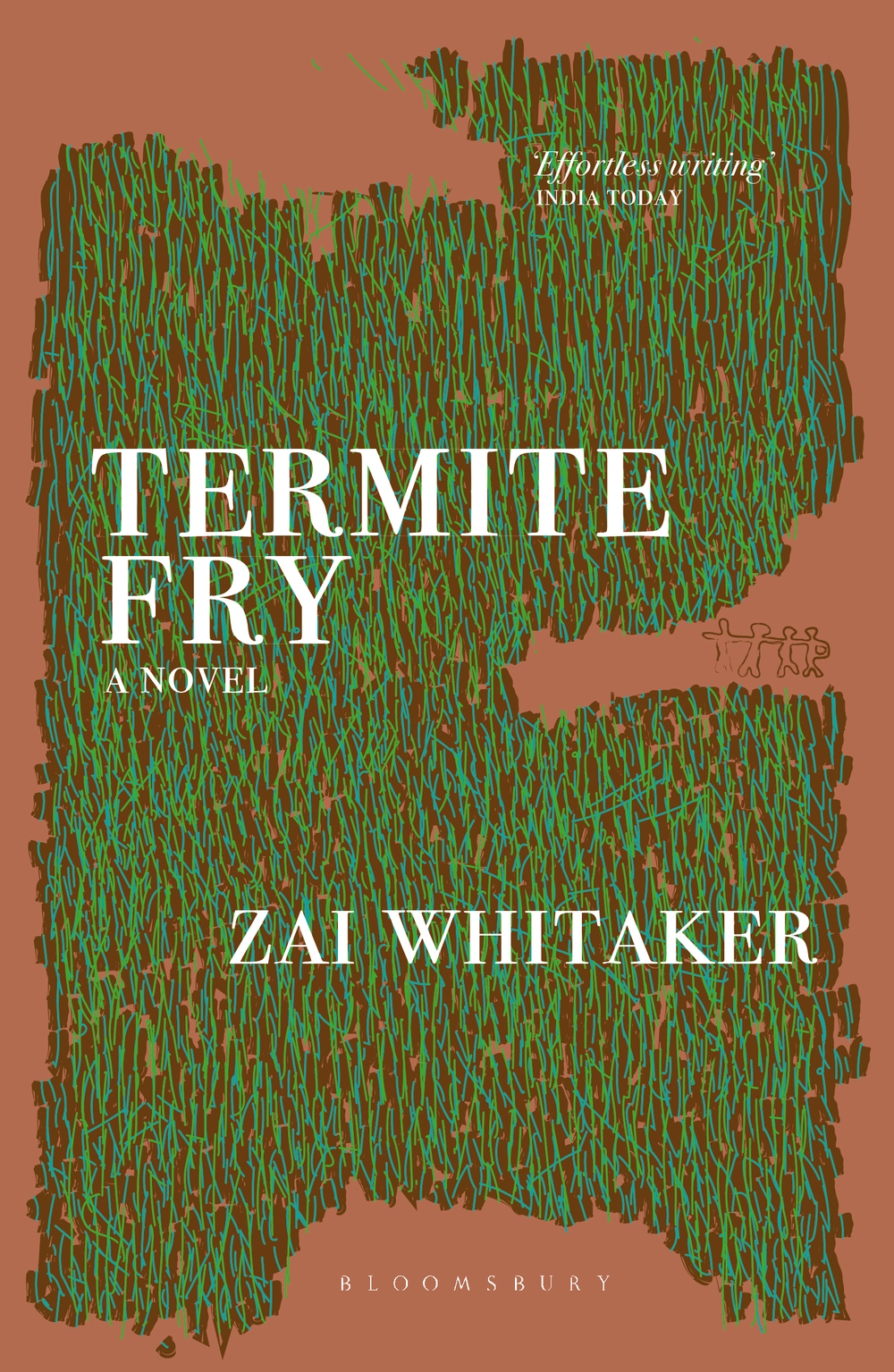Termite Fry by naturalist and author Zai Whitaker tells the story of three generations of an Irula family who make a living by catching snakes and selling the glossy skins of cobras, pythons, vipers and rat snakes. Their lives take a turn when the Wildlife (Protection) Act of 1972 comes into effect, endangering their livelihood. The Irulas find themselves sought after because they can get special licences to gather and sell forest and animal produce, such as snake venom, from which antidotes are made. Though in demand, the Irula family finds themselves being cheated by government officials regularly.
This is a story of Thenee and Mari, their parents Rani and Karadi, and their grandfather, a great shaman among the Irula, as they find ways to thrive amid change.
The following are excerpts from the book.

Termite Fry is fiction based on truth – on the lives of the Irular snake hunters of Tamil Nadu state, one of its almost forty Adivasi communities. Their history, particularly the effects of the Wildlife (Protection) Act of 1972, is similar to that of many other indigenous peoples around the world. The lives of forest- based people have changed drastically because of decisions made in the world outside theirs.
I had a balcony seat in this particular drama, having moved to Chennai just after the act was imposed and the snakeskin trade banned. I was working at the Madras Snake Park, which had a close connection with the Irular, who supplied us with snakes as well as rats and frogs to feed them. I was lucky enough to spend time with them on their hunting/gathering trips, and on the snake park’s reptile surveys and studies in the Western Ghats, Andaman Islands and other forests. Their phenomenal forest knowledge gave life to my second-hand familiarity. One afternoon Natesan showed me perfect examples of butterfly mimicry, and my dry textbook learnings about Bates and Muller sprang to life. I saw, also, their respect for the environment; hypoxia, or de-oxygenating streams with poisonous plants to catch fish, wasn’t a part of their hunting lore, though we had seen other hunters use this wasteful and cruel technique. And I watched as, after removing a piece from a medicinal or food plant, the mother plant was nursed with soil, humus and water so it would continue to grow and flourish.
Their close connection with nature, ‘one day at a time’ philosophy, humour and tragic naiveté about the outside world caught my imagination and I began writing about their lives, articles, film scripts and fiction. One of these truth- based stories is Kali and the Rat Snake, about a young Irular boy who finds acceptance in school when he catches a rat snake that strays into the classroom.
But why did Kali’s life become better only when he caught a snake? Why do Adivasis (or anyone who is different from us ‘normal’ folk) have to ‘prove’ themselves through some unique skill or talent? Why is there such a thing as ‘lower caste’ people, who are looked down upon? This kind of discrimination is unbearable, and yet we bear it.
[…]
Mari and Thenee’s thatha, Karadi’s father, was an authority on termites and knew the names of the different species. Each one made a different kind of mound and these too had their own names. He used to talk about the caste system among termites and end with a joke. It was better than the human one, he’d say, because termites can switch castes, but we can’t. A college teacher who lived in the high caste part of Seneri village used to visit Thatha with a tape recorder and ask him questions about eechel and snakes and medicinal plants and other such Irular things. Some of the elders didn’t like this and said Irular knowledge was being plundered. But Thatha laughed at them and said forest knowledge must be shared because it was world knowledge.
[…]
The dealer stretched the first skin on the plank, a bright fat Russell’s viper, and gently pulled it, pinning the top with his thumb. ‘Those other dealers,’ he said, ‘they don’t stretch it the way we do. They are cheaters, want to pay as little as possible. We’re not that type of people. We run a straight, honest business. Always give the top price.’
Thatha and Mari looked down at their toes in Irular fashion to prevent the escape of any expression of suspicion.
Writing something down on the paper, the dealer continued to measure and record and finally added up the numbers. ‘Thatha, you have earned a good amount today. Three hundred rupees! Tell me, what are you going to do with this wealth? How about treating me to a plate of biryani at the hotel?’
This was a joke, as he would never eat side by side with an Irular.
Thatha was struggling with that familiar misery of feeling cheated but not being able to prove anything. ‘That python alone, it’s so big, and someone told me that for a similar one, he had got … I mean, I’m not saying anything, but …’
The dealer mimicked him, one of the worst forms of insult in Tamil culture. ‘I’m not saying anything, I’m not saying anything.’
Mari couldn’t breathe from the shock. To watch Thatha, his God, everybody’s God, being humiliated was hard to bear.
‘You Irular are always insulting us, and yet you keep coming back. Why don’t you go somewhere else, if you think we are cheaters?’ Yunus knew this was a gamble but also knew that most other dealers in the city were in cahoots with Thole Raja and would never give the Irular more without checking with him. Thanks to this teamwork, they both made a clean 200 per cent profit on every skin.
Thatha cradled his chin in his hands in a gesture of helplessness and Mari had to look away. ‘Sorry, sorry, I didn’t mean anything. We are poor people, we have to …’




